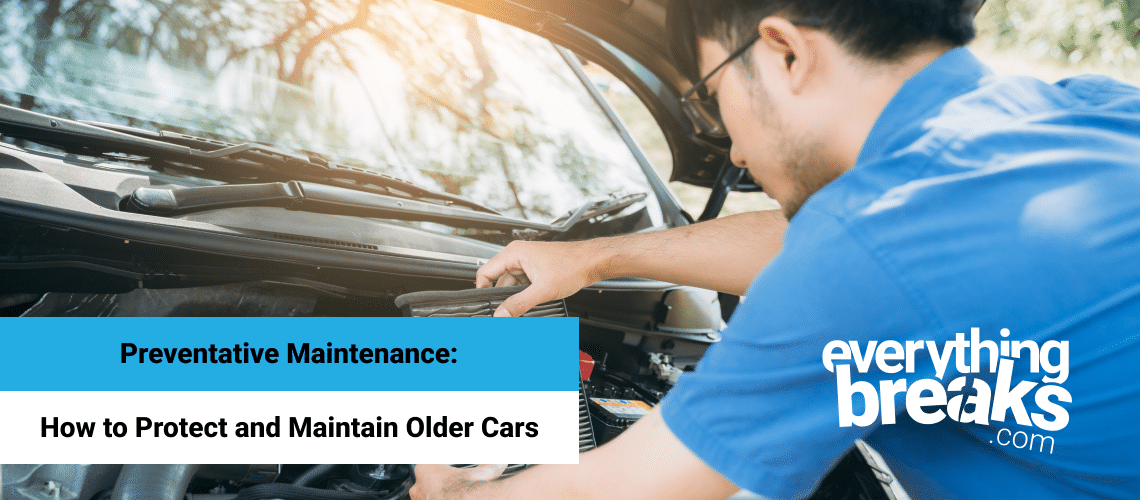Modern drivers are keeping their cars longer than ever. Sometimes it’s out of necessity—new car prices are still on the rise—and sometimes people just can’t let go of their current car. Regardless of the reason, every driver of an older vehicle needs to keep their car in good repair. As cars age, they require more maintenance, which means more money spent and a higher chance of expensive repairs.
How can you maintain your older vehicle? More importantly, how can you maintain that vehicle if you’re on a strict budget? These are the ways you can affordably keep your current car on the road, longer.
Battery Maintenance
Gone are the days when you could top off your car batteries with water to keep them healthy. Although today’s sealed batteries don’t require refills, heat still destroys them by boiling off the electrolytes. Manufacturers want consumers to simply replace batteries and call these batteries maintenance-free.
Although battery technology is constantly improving, it pays to have your battery checked when the seasons change. Buying a quality battery with higher cold cranking amperage will allow you to start your vehicle easier in cold weather when the efficiency of the chemical processes in batteries are least efficient. However, it is usually the summer heat that damages and deteriorates the lifespan of a battery even if it’s more noticeable in the winter.
If your car is eating batteries and alternators, you likely have a short circuit somewhere that drains the energy when it is parked. Check wires in areas where there is a lot of movement, like the trunk, and look for chaffing.
Tire Maintenance
It is best to have a set of winter tires and all seasons. Even though they are starting to build more features into all-season tires to make them perform better in the snow and ice, there is really no way to alter the temperature affinity of the rubber. The rubber in winter tires simply grips better in cold temperatures while the rubber in all-season tires performs best in any range above winter tires.
You should replace your tires every six to eight years even if the tread is good because the rubber weakens and could cause a blowout at high speeds.
Fluids and Oil Changes
Check your engine oil regularly before you start the car. No matter how good your oil may be, it won’t offer much protection if half of it has been consumed by engine wear or leaked out.
Oil should be changed according to the manufacturer’s recommendations, typically every three months or 3,000 miles for conventional oil and 5,000+ miles or 6+ months for synthetics.
The new synthetic oils distribute heat more thoroughly and are formulated to endure the harsh conditions of combustion. A full synthetic oil is the best for most vehicles unless you can’t afford to change all the seals where it may leak out easier than conventional oil.
Your coolant also provides a pivotal role in engine performance and fuel mapping by lowering the boiling point of the water and cooling the engine. If you have low levels of power steering or brake fluid, there are serious concerns that can reduce control over the vehicle.
Get an Extended Warranty
Owning an older vehicle can be a challenge if you are not prepared to fork out the money to maintain it. Even worse is the fact that older cars will require repairs sooner or later, no matter how on top of your maintenance schedule you are. Luckily, there are options available to make more repairs entirely affordable.
Auto Protection Plans from Everything Breaks give you multiple options to protect your vehicle from expensive repairs, and our options are all built around your budget. Our plans offer you significant savings, covering even the most expensive repairs. They also allow you to choose local auto repair shops that are convenient for you. That’s not all. We offer incredible benefits like roadside assistance, rental car coverage, and so much more.
Take care of your older car and keep it on the road longer with Auto Protection from Everything Breaks.








